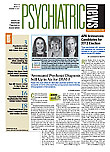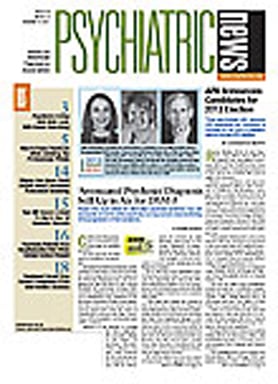That SSRI antidepressants increase the chances of gastrointestinal bleeding in susceptible individuals has been known for over a decade, but the increased use of anticoagulation therapy following heart attacks raises the question of how this therapy interacts with SSRIs.
Now a new study indicates that some combinations of commonly used antiplatelet medications can increase the risk of bleeding, said a group of researchers led by Elham Rahme, Ph.D., an assistant professor of medicine and an associate member in the Department of Epidemiology, Biostatistics, and Occupational Health at McGill University in Montreal. The study was published online in the Canadian Medical Association JournalSeptember 26.
SSRI therapy is not unusual for patients who have had a heart attack, said Rahme, in background information accompanying the study. As many as 20 percent of cardiac patients report symptoms of depression.
The researchers looked at the records of 27,058 patients from Quebec who were discharged from hospitals from January 1998 to March 2007 with prescriptions for aspirin and/or clopidogrel following an acute myocardial infarction. A total of 690 patients (about 3 percent) were also prescribed an SSRI.
"The study adds to the field in that 690 SSRI takers is a large number compared with most studies, and so we should be cautious when using multiple agents that can cause bleeding when treating with an SSRI," said Robert Weinrieb, M.D., an associate professor of psychiatry and director of medical and consultation psychiatry at the Hospital of the University of Pennsylvania, in an interview. He was not involved in the Canadian study.
The population-based, retrospective cohort study design drew on data from hospital-discharge records, physician-billing information, medication-reimbursement claims, and demographic data in the province of 7.5 million people. It included patients over age 50 who had a heart attack and excluded those admitted to a hospital with a gastrointestinal bleeding in the prior year or who had any bleeding during the index admission.
Excluding those latter patients may have affected the study's outcome, cautioned Weinrieb. "Maybe they are the ones at the highest risk," he suggested.
A total of 1,070 episodes of bleeding occurred in this population during the study period, Rahme reported.
The use of antiplatelet medications alone raised the risk of bleeding, as might be expected. Used alone, aspirin and clopidogrel resulted in an equal risk of bleeding. However, adding SSRI treatment to antiplatelet therapy raised the risk of bleeding compared with antiplatelet therapy alone, the researchers concluded.
The hazard ratio of taking any antiplatelet drug plus SSRIs was 1.42, compared with aspirin use alone, while the combination of aspirin, clopidogrel, and an SSRI produced a hazard ratio of 2.35. Adding an SSRI to dual platelet therapy produced a hazard ratio of 1.57 compared with dual therapy alone. Use of clopidogrel plus an SSRI appeared to increase risk, as well, but because the absolute numbers were so small that they did not reach statistical significance.
The study did not cover heart attack patients using SSRIs who were not on antiplatelet therapy, because under current guidelines, antiplatelet therapy is normally prescribed for all patients after a heart attack, the researchers noted.
However, that raises a further question.
"We don't know what the base rate of spontaneous bleeding is in this population," said Weinrieb, who has studied the interaction of SSRIs and bleeding risk. "And we can't know that without a control group."
But given current treatment guidelines, it would be hard to randomize patients so they did not receive antiplatelet therapy, he acknowledged.
"Ultimately, clinicians must weigh the benefits of SSRI therapy against the risk of bleeding in patients with major depression following acute myocardial infarction," said Rahme and colleagues. "Clinicians should exercise caution when prescribing SSRIs to their patients with major depression following acute myocardial infarction."
Weinrieb agreed, noting that depression is an independent risk factor for heart disease, he said.
"When I'm faced with such a situation and clinically need to use an SSRI—say, when non-SSRIs are poorly tolerated or didn't work in my patient—I explain that this risk exists and tell them what warning signs to look for (like bruising, bleeding gums, petechiae, and so on)," said Weinrieb. "I will also contact their primary care doctor to ask whether we can safely avoid using any of the other agents associated with bleeding before we start the SSRI."
"Risk of Bleeding Associated With Combined Use of Selective Serotonin Reuptake Inhibitors and Antiplatelet Therapy Following Acute Myocardial Infarction" is posted at www.cmaj.ca/content/early/2011/09/26/cmaj.100912.>

